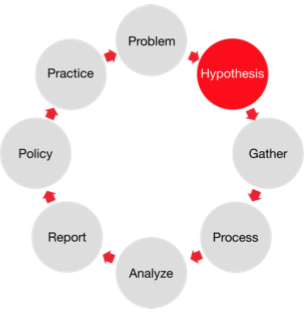
Hypotheses serve to focus inquiry by proposing one or more cause and effect relations. In the case of research in education such relations might become the basis for changing practices in the learning sector to achieve certain defined desirable outcomes. Although plausible hypotheses can come from many different sources, including individual ad hoc inspiration, there is a large body of prior research in education, learning, and the social sciences that contains a rich body of hypotheses (some well supported, others less so) that can be mined to identify hypotheses related to previously identified problems.
One strategy for automating the process of generating hypotheses to focus an inquiry is to assemble the body of prior research and prepare it for repeated text mining and topic modeling for hypotheses related to the research problems and questions that surface in a prior automated problem identification phase. Note that the analyses of the knowledge base are not to identify proven results in the existing educational research literature since there are few robust results that can be generalized and applied to new contexts. Rather the mining of the knowledge base is to find hypotheses that have already been formulated by prior research. It is an open question as to whether the hypotheses identified in such a knowledge base will be sufficient at the outset, but the knowledge base will improve over time as will the capacity of educational researchers to work with such hypotheses.


Be the first to comment